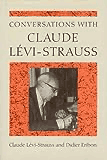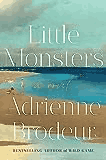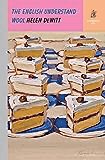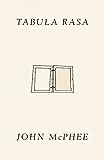by Didier Erebon
Very valuable source of anecdotes of Lévi-Strauss, especially for his war years in New York when he taught under the name “Claude L. Strauss” to avoid confusion with blue jeans. One striking thing about the book is how relaxed Lévi-Strauss is about old rivalries, old slights, ideologies, ecological disaster, the War that was past, the War that was ongoing, and the War that was (and is) to come.
When critics of Structualism said (in May 1968) that, “Structures do not go out into the street,” they were not wrong. I don’t think anyone on the left today — anyone in academe — is half as calm as Lévi-Strauss seems to be in 1988.



